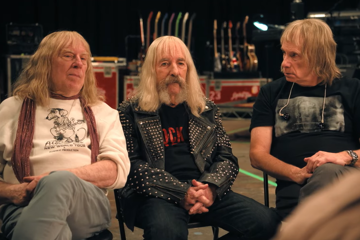Tidal's '75%' Royalty Rate Not Exactly What Jay Z Made It Out To Be
It's 75%, all right, but it's how that 75% gets divided up that's the real cause for worry
Earlier this week, global rap mogul Jay Z took to Twitter to deliver a stream-of-consciousness defense of his fledgling music-streaming subscription service Tidal, which has been experiencing a hard time since its gilded launch about a month ago.
As part of his many-faceted rebuttal to criticism aimed at Tidal, Jay Z highlighted the fact that the company supposedly pays a "75% royalty rate to ALL artists, writers and producers — not just the founding members on stage", referring to the service's massive launch event that brought together several of the world's richest musicians to keep straight faces while talking about "the little guy".
Tidal pays 75% royalty rate to ALL artists, writers and producers - not just the founding members on stage.
— Mr. Carter (@S_C_) April 26, 2015
However, as Stereogum has pointed out (via The Hollywood Reporter, that royalty figure of 75% might not be exactly what it's cracked up to be by Mr Carter.
Don't miss a beat with our FREE daily newsletter
Speaking to The Hollywood Reporter, Tidal's chief investment officer, Vania Schlogel, elaborated on the meaning behind Jay Z's tweet, explaining that while Tidal will indeed pay 75% of its revenue out in royalties - about 5% above the industry average - that's not actually all going to the artists; in fact, just under two-thirds of the company's revenue (or about 83% of its eligible royalty funds) is going straight to labels.
As The Hollywood Reporter explained:
"There was some confusion on the internet about whether 'royalty rate' was a percentage of Tidal's total revenue. According to Schlogel, it is. The industry standard royalty rate, she says, is 70% (roughly 60% to record labels, roughly 10% to artists via publishers). Tidal pays 62.5% and 12.5% (which equals the 75% Jay Z is referring to)."
It's also worth checking out this Time article, whose sole purpose was to fact-check each of Jay Z's so-called #TidalFacts offered up during his Twitter tirade, and it turned up some interesting conclusions.
Although, as with the royalty split, one could argue that Jay Z was mostly being truthful with his defensive tweets at the start of the week, at least to the best of his knowledge, certain assertions don't seem to hold up - for example, Spotify's rise took quite a few years less than the nine Jay Z claimed in his tweets; there's no evidence of the multimillion-dollar smear campaign that Jay Z says is targeting his business is actually a thing (though allegations of competitive blocking at Apple are almost certainly valid); and it's questionable that the 770,000 subscribers to which Jay Z so proudly refers all came along following his purchase of the existing Tidal platform — which, according to Time, already had a user base numbering about 500,000 before the acquisition.
It's probably a good thing, then, that Tidal's main party line remains unchanged: "Our actions will speak louder than words." Here's hoping that proves to be the case.







